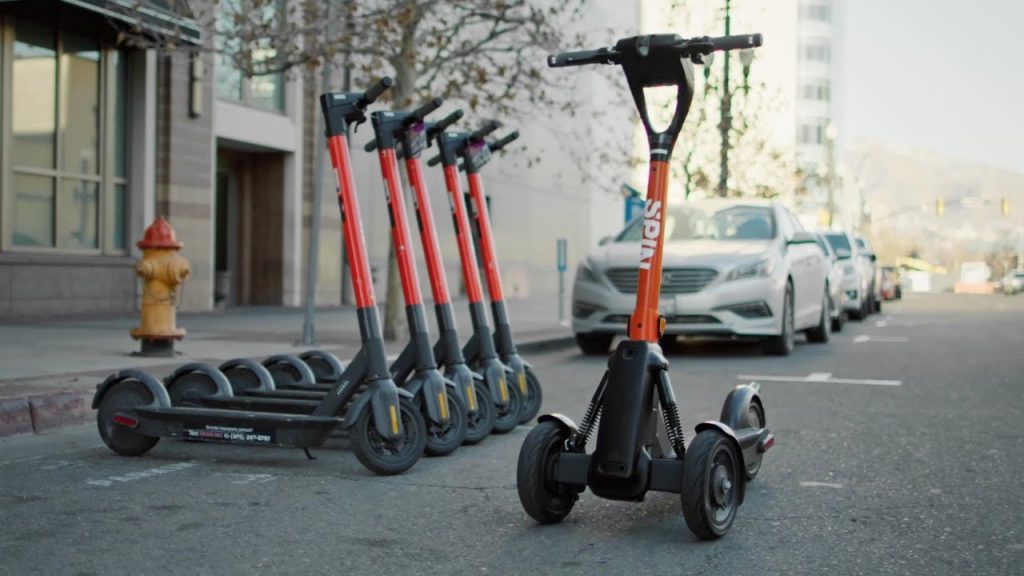While the electric scooter has grown in popularity since its introduction in 2017, one big drawback has been that many riders have complained that once they are finished riding, they can simply drop them off somewhere, leading many sidewalks to become blocked.
Spin, a scooter company owned by Ford, is experimenting with a possible solution to the problem.

For starters, these scooters don’t look like the rest of the scooters on the road. The T60 model from Degway has a third wheel attached to the front of the scooter.
The scooters also include sensors from Tortoise, a company that is experimenting with teleoperation to control shared electric scooters.
Spin plans to deploy 250 remote-controlled scooters in Boise, Idaho, to see if they can help with the problem.
Tortoise’s sensors enable the front and back-facing cameras on the scooters to give operators remote control to move the scooters when they are blocking roads or sidewalks.
This suggests that the scooters will be able to travel a few blocks to reach passengers.
“There has been a lot of fanfare around the promise of teleoperated e-scooters, but this collaboration represents a turning point in concrete operational plans to introduce them to city streets,” says Ben Bear, Spin’s chief business officer.
In addition to providing customer efficiency and more order to city streets, this will greatly boost unit economics, minimizing the maintenance effort needed to manage and reposition fleets while reducing mileage expended driving to rebalance vehicles.
Ben Bear
The issue that these remote-controlled scooters are designed to address has existed since the beginning of the electric scooter era. At the moment, independent contractors collect scooters late at night to charge and rebalance them.
Contractors are charged for each scooter they collect, which has resulted in squabbles, brawls, and even threats of abuse.
Riders sometimes have difficulty finding an accessible scooter near their place. Scooters often block pedestrian walkways on sidewalks. This is particularly worrying for wheelchair users and other pedestrians with mobility issues.
Scooters tend to congregate in particular areas around towns, and cities have also noted that scooters are often absent from low-income areas.
When a rider has finished riding, Tortoise’s teleoperators would be able to remotely reposition the scooter if it is blocking the sidewalk or has been dropped off in an inconvenient place for other users. Spin has also announced the addition of a “scooter hailing” feature, which will enable users to order a scooter in advance or in real time.
In a small suburb outside of Atlanta, Georgia, a new type of shared electric scooter has arrived. With extra components added to the deck and handlebars, these scooters appear to be bulkier than the typical shared two-wheeler.
They’re also four-wheelers with an extra set of training wheels in the center of the deck, rather than two-wheelers. That’s because they’re the first commercially available remote-controlled scooters in the United States.
These aren’t self-driving scooters, but they will be driven in part by self-driving technology. The scooters will be operated by a team of remote employees in Mexico City, who will be 1,700 miles away.
These teleoperators use Xbox controllers to maneuver the scooter around Peachtree Corners, a business park north of Atlanta, while watching a live stream from the scooter’s cameras and monitoring other sensor details.
These remote-controlled scooters can then be driven around a city as required, eliminating the need to hire teams of amateur scooter hunters.






